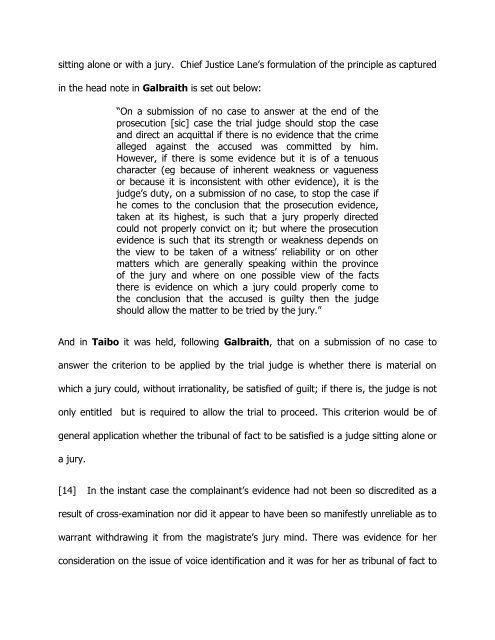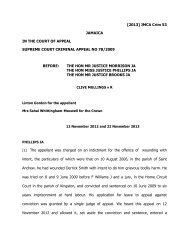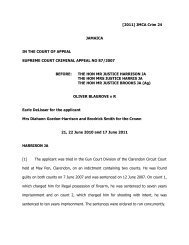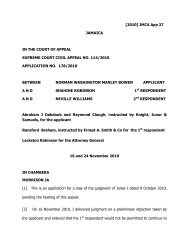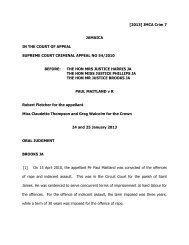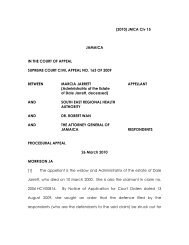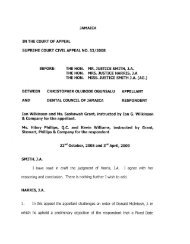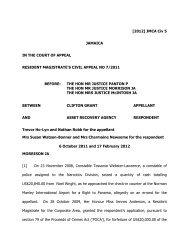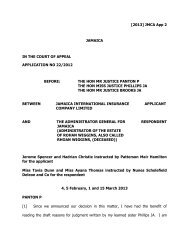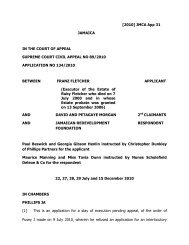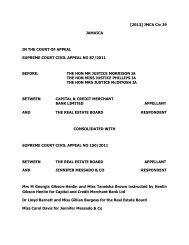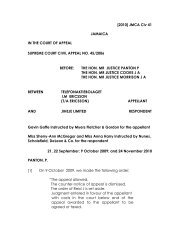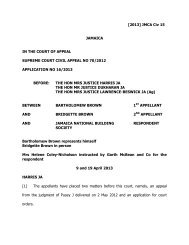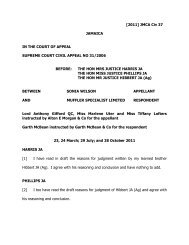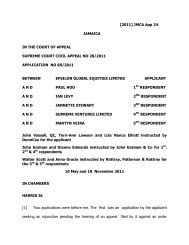Smith (Elorda) & Goulbourne (Everton) v R.pdf - The Court of Appeal
Smith (Elorda) & Goulbourne (Everton) v R.pdf - The Court of Appeal
Smith (Elorda) & Goulbourne (Everton) v R.pdf - The Court of Appeal
You also want an ePaper? Increase the reach of your titles
YUMPU automatically turns print PDFs into web optimized ePapers that Google loves.
sitting alone or with a jury. Chief Justice Lane’s formulation <strong>of</strong> the principle as capturedin the head note in Galbraith is set out below:“On a submission <strong>of</strong> no case to answer at the end <strong>of</strong> theprosecution [sic] case the trial judge should stop the caseand direct an acquittal if there is no evidence that the crimealleged against the accused was committed by him.However, if there is some evidence but it is <strong>of</strong> a tenuouscharacter (eg because <strong>of</strong> inherent weakness or vaguenessor because it is inconsistent with other evidence), it is thejudge’s duty, on a submission <strong>of</strong> no case, to stop the case ifhe comes to the conclusion that the prosecution evidence,taken at its highest, is such that a jury properly directedcould not properly convict on it; but where the prosecutionevidence is such that its strength or weakness depends onthe view to be taken <strong>of</strong> a witness’ reliability or on othermatters which are generally speaking within the province<strong>of</strong> the jury and where on one possible view <strong>of</strong> the factsthere is evidence on which a jury could properly come tothe conclusion that the accused is guilty then the judgeshould allow the matter to be tried by the jury.”And in Taibo it was held, following Galbraith, that on a submission <strong>of</strong> no case toanswer the criterion to be applied by the trial judge is whether there is material onwhich a jury could, without irrationality, be satisfied <strong>of</strong> guilt; if there is, the judge is notonly entitled but is required to allow the trial to proceed. This criterion would be <strong>of</strong>general application whether the tribunal <strong>of</strong> fact to be satisfied is a judge sitting alone ora jury.[14] In the instant case the complainant’s evidence had not been so discredited as aresult <strong>of</strong> cross-examination nor did it appear to have been so manifestly unreliable as towarrant withdrawing it from the magistrate’s jury mind. <strong>The</strong>re was evidence for herconsideration on the issue <strong>of</strong> voice identification and it was for her as tribunal <strong>of</strong> fact to


